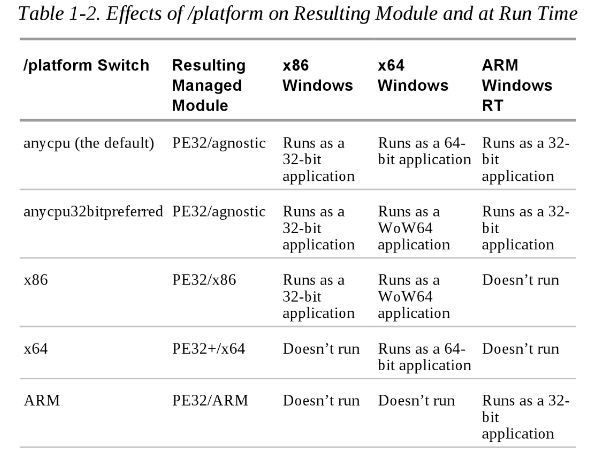I have some confusion related to the .NET platform build options in Visual Studio 2008.
What is the "Any CPU" compilation target, and what sort of files does it generate? I examined the output executable of this "Any CPU" build and found that they are the x86 executables (who would not see that coming!). So, is there any difference between targeting executable to x86 vs. "Any CPU"?
Another thing that I noticed, is that managed C++ projects do not have this platform as an option. Why is that? Does that mean that my suspicion about "Any CPU" executables being plain 32-bit ones is right?


Any CPUand you're runnning on a 64 bit OS, you lose the ability to Edit and continue while debugging. (You're effectively debugging a 64bit process). You could make the Startup project targetx86to circumvent this while debugging. (The assemblies referenced from the startup project may continue to targetAny CPU. – Bullfrogx86library being consumed by anAnyCPUapplication where I had to setPrefer 32-bitto avoid a load error. – Webby